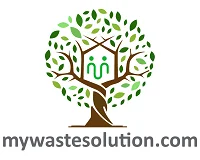-
-
-
- Requirements
-
-
-
+91-9999-241-423
info@mywastesolution.com
ETP Consultants to manage ETPs efficiently
What is an ETP & how can ETP Consultants help you?
Read more
Mukesh Soni
Sanjay Kangralkar
DHARMESH SHAH
Hanzala Paloba
Nirav Joshi
Ashutosh
Numan Azad
Sushmita Uppalapati
Maulik Patel
Kshitij Mungara
Hardik Sanghani
Om
Ankit Tiwari
Dhvani Purohit
Digesh Ramkumar
SAGAR APTE
Navnath Ghodake
Aditya Kanwar
INTELLECT AQUA PRIVATE LIMITED
Kalpana Yadav
Frequently
asked
questions
Effluent Treatment Plants (ETP) is a process that helps to treat industrial wastewater to make it suitable for reuse, as well as reduce the pollution of the environment. The ETP uses physical, chemical and biological processes to remove pollutants from wastewater, so that it can be safely discharged or reused. Our experienced team of consultants will assess your business needs and provide tailored solutions to fit your individual requirements.
The working principle of an Effluent Treatment Plant (ETP) is to process wastewater and reduce contamination levels. In order to achieve this, the ETP incorporates different stages of treatment such as screening, sedimentation, disinfection, filtering and advanced oxidation processes. All these steps are designed to remove suspended solids, odors and pollutants from water before it can be safely discharged into the environment.
There are four main types of ETP plants: mechanical, biological, chemical, and physical. These can be used in combination or individually depending on the needs and characteristics of the wastewater being treated. Mechanical ETPs are best for large volumes of wastewater, whereas biological processes are more suitable for smaller-scale operations. Chemical and physical treatments can be used to reduce concentrations of specific pollutants. In addition, advanced technologies such as activated sludge processes could be utilized to optimize treatment performance.
Absolutely! An ETP plant is a great investment for any business. It not only helps to reduce the environmental impact of your business operations but also saves you money in the long run. Installing an ETP plant will reduce operational costs while improving your company's reputation and sustainability. With proper management and maintenance, an ETP plant can be a very profitable choice for your business.
ETP plants use a variety of chemicals, depending on the type of wastewater that needs to be treated. Commonly used chemicals include coagulants, flocculants, activated carbon, acids and bases. In addition, biological agents such as bacteria, fungi and enzymes can also be employed to enhance the efficiency of effluent treatment processes. We are here to help businesses select the right chemical for their specific needs and ensure that their effluent treatment plants are running at peak performance.
An ETP consultant provides expertise and advice on how to design, construct, operate, maintain and comply with the regulations of an effluent treatment plant. We help businesses understand their specific needs in order to design a cost-effective, efficient and compliant ETP that meets their needs. Our experts are well-versed in the laws and regulations pertaining to effluent treatment plants, making us the perfect choice for your business.
An ETP consultant will work with a business to identify and assess their wastewater needs, as well as design and construct an appropriate solution. This can include identifying the right technology for their particular needs, performing site surveys, designing processes, commissioning operations and providing advice on emissions control. The ETP consultant will also ensure that all legal requirements are met during the planning and implementation of the project.
An ETP consultant can provide valuable insights into how to efficiently and effectively manage the effluent generated by a business. From understanding the legal requirements to optimizing your process design, an ETP consultant can help you reduce costs, protect the environment and ensure compliance with regulations. They can advise on the best equipment, identify cost-saving opportunities and provide guidance on how to maintain compliance.
If your organization is in the manufacturing or industrial sector, you likely need an ETP consultant. Companies in these fields generate a lot of wastewater which needs to be treated correctly before it can be released into the public sewer system. An ETP consultant will assess your facility and create a plan to help reduce pollutants and other contaminants from the effluent. Furthermore, they can oversee operations and ensure compliance with local, state, and federal regulations.
Absolutely! An efficient environmental strategy for businesses is critical. As an ETP consultant, we specialize in helping businesses identify and implement strategies to reduce their environmental impact. We have extensive experience in designing, constructing and operating sustainable effluent treatment solutions that are tailored to individual business needs. Our solutions minimize emissions, reduce waste, and ensure compliance with relevant legal requirements.
Yes, sludge from Effluent Treatment Plants (ETP) is considered to be an environmental hazard. This is why it is important to work with an experienced ETP consultant who can advise you on how to properly store and dispose of the waste in a safe and responsible manner. Our services are designed to help businesses reduce their environmental impact while maximizing their efficiency.
The pH of the ETP effluent water should be controlled at a range that is safe for the environment and disposal. The exact pH limits are based on the specific site, but usually, we recommend keeping pH between 6 and 8.5 to ensure environmental sustainability. We can also advise on any additional steps that need to be taken in order to achieve this, such as using alkali or acid to correct the pH of the effluent water.



